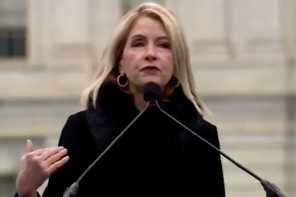In the latest episode of my Bloggingheads program, I discuss, with The American Prospect’s Paul Waldman, the political obstacles facing the secularist movement in the United States:
You can watch the entire discussion, which was prompted by this past weekend’s Reason Rally, here. Waldman wrote more about atheism in the United States in a column at TAP, and I wrote one on the prospects for a secularist political movement for the Guardian.
Waldman observes:
But it won’t be easy for secular Americans to become better organized as a political force, even as they increase in number. The major impediment to that kind of organization is the fact that it is very difficult for secularists to conceive of themselves in tribal terms. Most tribes, whether of nations or ethnicities or sports fandom, can easily demarcate their membership—it’s the people who look like us, or talk like us, or dress like us. Tribes organized around religious belief have rituals, sacred texts, and physical spaces that all serve to bind the participants together. Atheism has none of these things—most of the time it’s an individual choice, made and kept alone.
In my piece, I point out how even Democrats still resort to appeals to faith, but:
The religious right has given the secular-humanist-atheist community a huge opening: by placing conservative religious doctrine front and center in the healthcare debate, they have raised serious constitutional questions about what religious freedom and church-state separation mean. Many of the organizations and activists who are part of a coalition of church-state separation advocates have long done stellar work in raising awareness of encroachment of religion in politics and policy-making. Being able to keep the pressure on church-state separation issues during a campaign season will be the test of the movement’s political muscle. It might make Rick Santorum throw up, but that’s kind of the point.




